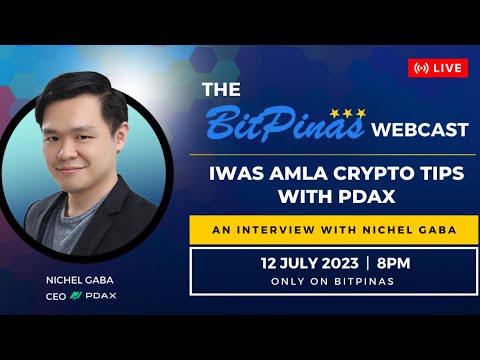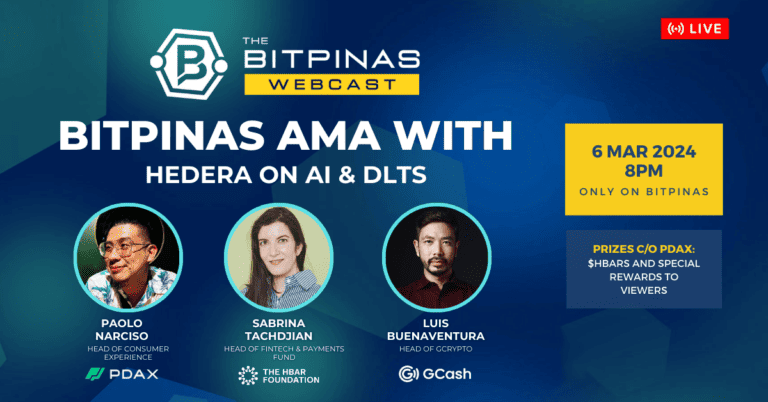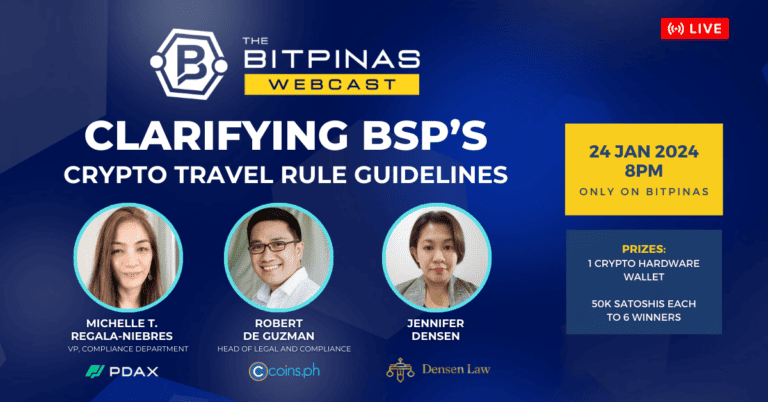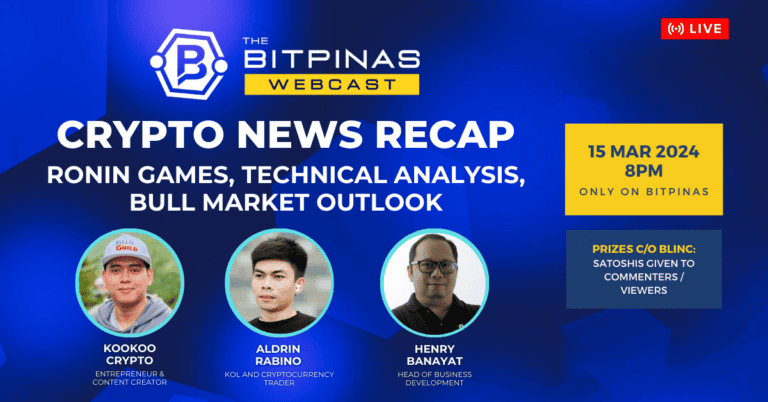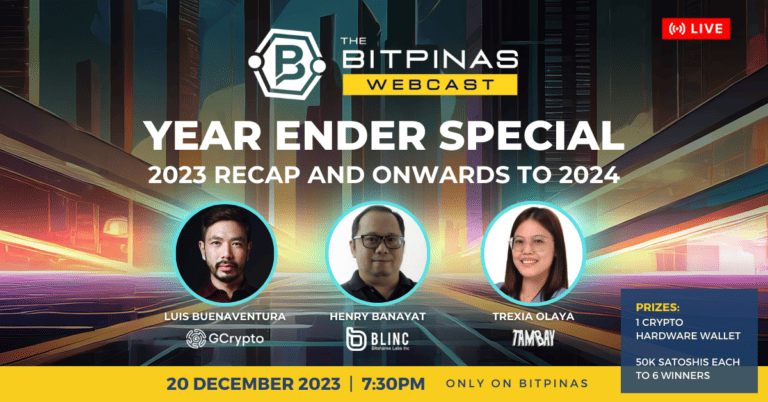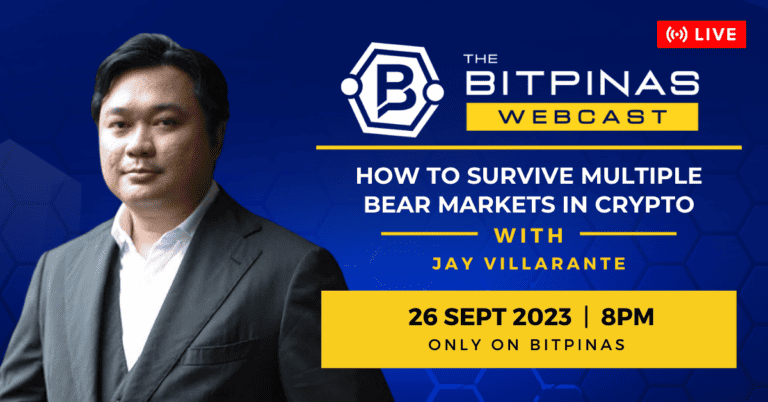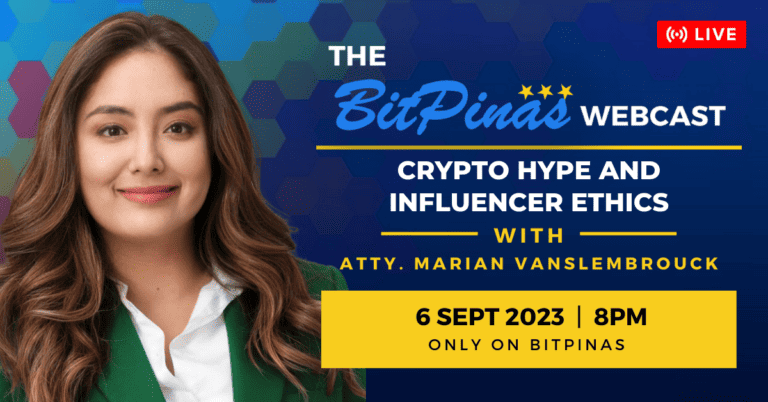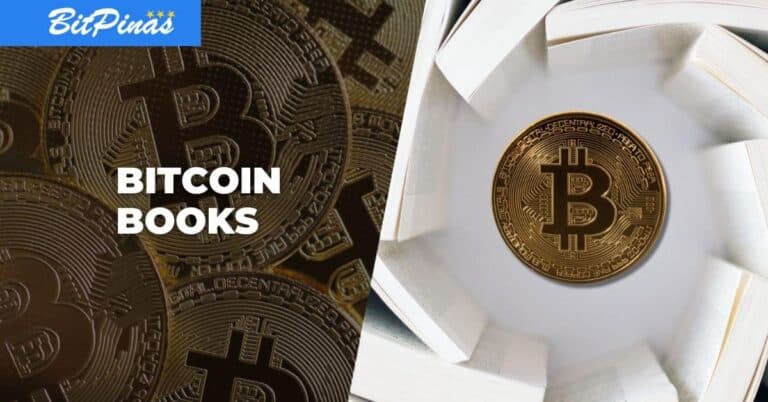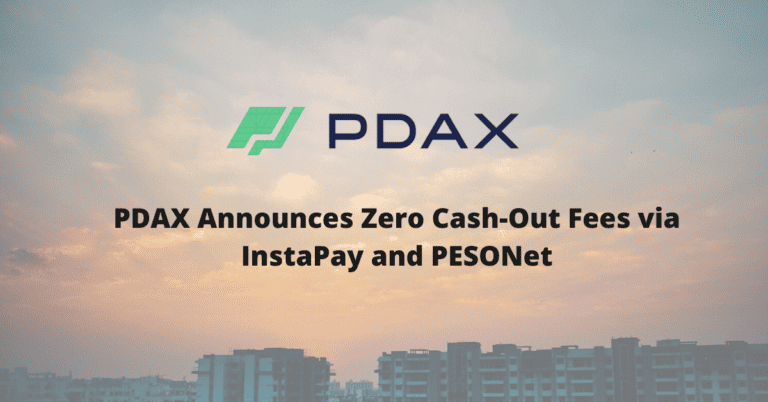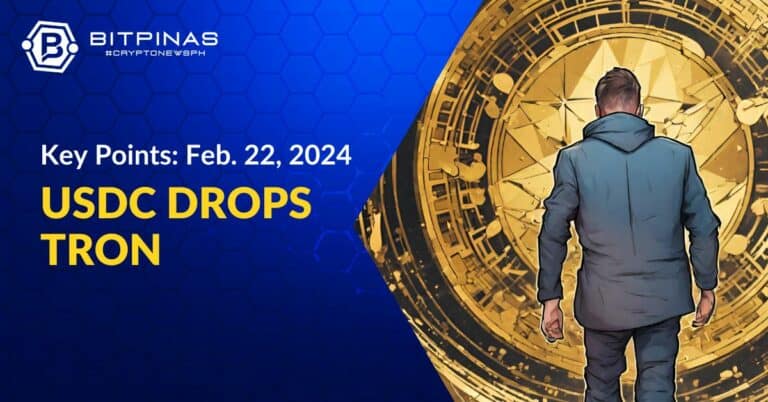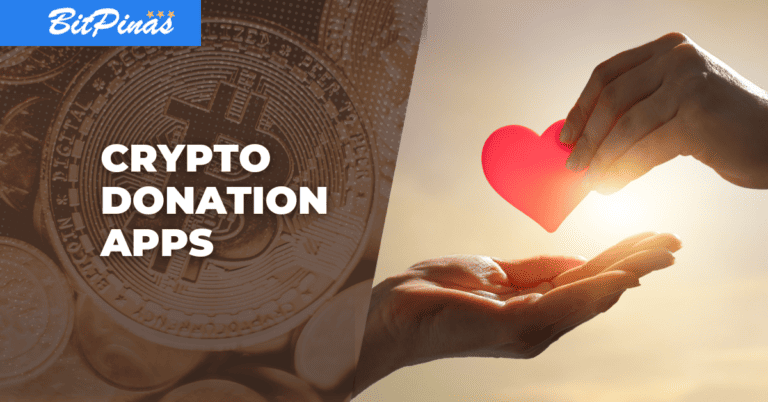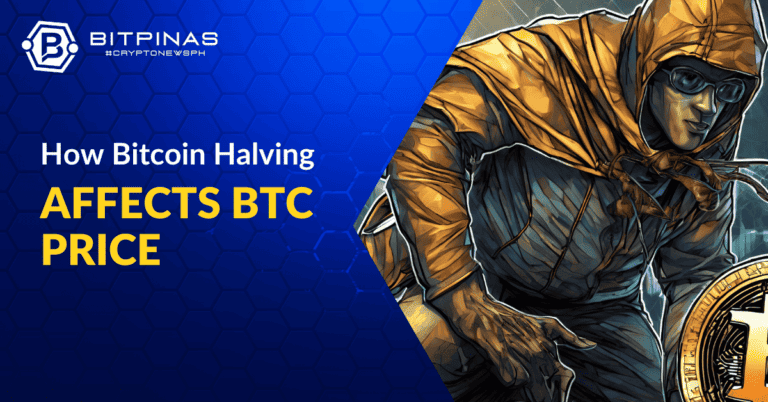AML and Crypto Regulations | BitPinas Webcast 17
PDAX CEO Nichel Gaba explained how the Anti-Money Laundering Act works and affects crypto-related transactions.
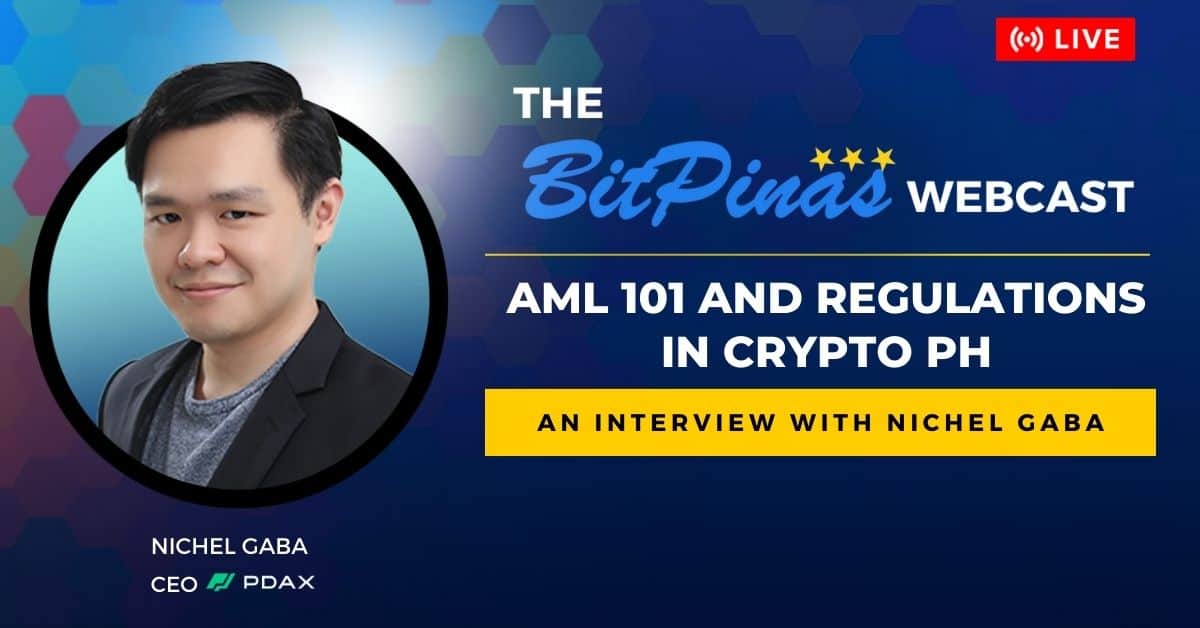
BitPinas interviewed Nichel Gaba, the CEO of PDAX. Founded the exchange in 2018, Gaba was able to share and explain how the Anti-Money Laundering Act works and affects crypto-related transactions.
The interview was conducted on July 12, 2023.
Aside from this, he also gave some updates on the ongoing system switch and future plans for PDAX.
Table of Contents
Highlights
- AML 101 and Its Relationship with Crypto (20:30)
- As a Crypto Exchange, How Does PDAX Handle its AML System? (37:00)
- Are AML Regulations Really Strict? (43:00)
- Tips on How to Comply Accordingly with AML Rules (52:00)
- Live Audience Questions Part 1 (58:00)
- PDAX System Swtich Overview (1:07:00)
- PDAX on GCrypto (1:28:45)
- Talking about the Infrawatch vs Binance issue, is PDAX involved? (1:31:00)
Nichel Gaba’s thoughts on Coins.ph CEO Wei Zhou and Binance CEO Changpeng Zhao, an icebreaker (1:45)
- On Wei Zhou: “I first met him, siguro, in 2018 or 2019 at a crypto conference sa Singapore. At that time, CFO (Chief Financial Officer) pa siya nun ng Binance, kaya lahat kami noon na galing smaller exchanges, nakikinig talaga sa kaniya. I always thought na ‘yung pagkakaintindi niya sa market ay super sharp, and it was very flattering that he saw the opportunity in the Philippines.”
- In a BitPinas webcast, Zhou said that centralized exchanges do not jive well with having their own NFT marketplace. PDAX, inside its app, has an NFT marketplace—Mintoo. For Gaba, “What we want to achieve with Mintoo, is ‘yung use case or utility-based NFTs, ‘yung pwede mong gamitin as tickets or as rewards. And for that kind of NFT, I think you have a centralized platform.”
- On Changpeng Zhao: “Nakasama ko siya for five days, and I got to know him quite well, he’s definitely very smart, very sharp. He’s very competitive din. It takes a very committed and competent guy to build something like Binance.”
Nichel Gaba’s Pre-PDAX Era and the Reason He Started PDAX (6:45)
- Gaba is half Filipino and half Chinese. He first worked for HSBC, one of the largest banking and financial services institutions in the world.
- 2014: He left HSBC and flew to the U.S. to study, which was the moment he first heard about crypto, but he did not buy.
- 2017: “Nung mga time na ‘yun, I knew that there was no way that crypto trading will be stopped. I really felt na we really needed a trusted brand and I thought na this is the best place to build an exchange kasi not only do we have a large OFW remittance corridor, pero marami rin tayong inefficiencies na kayang i-solve ng crypto at blockchain technology.”
- 2018: “There’s so many crypto platforms out there, why build one na local and regulated?”
- According to Gaba, there are already institutions in the country that manage portfolios for high-networth individuals, BSP-supervised institutions, and even remittance companies that utilize PDAX’s services.
- For remittances, the CEO disclosed that instead of receiving dollars, these companies want to receive crypto and PDAX will be the one to convert to Philippine Peso for them. Most of them use XRP.
What is Money Laundering and Its Relationship with Crypto (20:30)
- AML explained: “Money laundering is when a criminal tries to use the banking system para ipasok yung criminal activities niya.”
- Why are crypto-related transactions tagged as AML in banks? “Holding, buying, and selling crypto is not illegal—hindi ito money laundering. Pero if nakakita ang bank ng suspicious na transaction (mas malaki sa regular na income), then there will do further KYC.”
- However, Gaba expressed that sometimes, instead of doing further KYC, banks will just instead close your bank account because doing it will be cheaper for them. KYC or Know Your Customer are guidelines that require banks to verify the identity, suitability, and risks involved with maintaining a business relationship with a customer.
- If crypto is not legal tender, why is it covered under AMLA? “Ang tina-try i-achieve ni AMLA, lahat ng channels for value, they should be part under AML regulation. The problem with crypto, is that, not all the players are not part of that umbrella (regulation). For example, nag-transact ka on unregistered VASP or marketplace, that is a risk flag right away.” A VASP is an entity that is registered under the Bangko Sentral ng Pilipinas (BSP); they are permitted to market virtual assets, including cryptocurrencies.
- Why are there traditional banks that seem to be allergic to crypto transactions? “It’s very hard for them to change rules or just allow crypto by creating frameworks, etc. Plus, it is also true that crypto is a new asset, and some of the banks are probably concerned to take the risk.”
- Why is “Crypto” as a source of income not acceptable when applying for a new bank account or even a visa? “They probably don’t have the procedure to deal with crypto assets. Because they rather not take the risks, nade-decline siya.”
As a Crypto Exchange, How Does PDAX Handle its AML System? (37:00)
- “Our AML is no different from a bank, and a lot of people might find that surprising. Except that for us, we’re using technology to do something that traditional banks have yet to adopt.”
- How does PDAX classify if a specific transaction is a money laundering activity? “The first set of potential customers that we cannot serve with are the sanctioned persons (those who are on the U.N.-sanctioned list, North Koreans, Iranians, etc.). We also have criteria on the amount of transaction that users can perform depending on their source of wealth.”
Are AML Regulations Really Strict? (43:00)
- Gaba highlighted that “You should always have a relationship with regulated exchanges because money laundering rules will require that you go through regulated exchanges. If you are transacting in an unregulated exchange or marketplace, the chances are very high that your bank will either want to do enhanced KYC or will close your account. It might not happen now, but if you transact often enough, the banks will find that out.”
- “We actually love regulated services. You will never ride a plane that is not accredited. You will never get treated that is not accredited with the DOH. You will also not take a medicine that is not approved by DFA. It’s the same thing with crypto, some years from now, you’ll realize that ‘hey, dapat sa regulated exchanges ako nagta-transact.”
- Speaking of dealing with regulated exchanges, Gaba admitted that there are still pros and cons. Thus, it still depends on traders where to transact their crypto assets.
Tips on How to Comply Accordingly with AML Rules (52:00)
- “As customers, we have every right to transact with our banks, whatever we want. If you have unusual or not common activities with your bank transactions, then they will have to investigate that those are not proceeds of a crime.”
- Tip 1: Gaba emphasized that a lot of crypto users have updated KYC or personal information with their banks. Thus, it is advised to always update your KYC with your banks.
- Tip 2: If you can’t, Gaba then suggested opening a new account and being honest with the personal information that will be supplied to the bank.
- Tip 3: “If you think na hindi nagging patas yung bangko in closing your account, you complain to the BSP, don’t complain to the bank, sinara nga nila yung account mo eh.”
- Additional tip: For the CEO, transacting with regulated exchanges and VASPs really helps avoid being flagged down.
Live Audience Questions Part 1 (58:00)
- Wen PDAX staking? “In my opinion, staking is a very important feature. Staking is something that we’ve explored in the past and I think, it was very unfortunate that last year, we had so many scandals involving companies that offer yield and staking services. Now it’s a little bit hard to get our regulatory framework comfortable with offering a staking feature but it’s something that for sure we want to offer and hopefully, we get to offer one someday.”
- Wen native tokens of Pinoy Crypto Projects in PDAX? “Actually we’ve had a listing framework for projects for a while now and there are applications to list. If you have a project now you really are passionate about and that you want us to consider for listing, please reach out to us about it. There’s a review process, and it might take some time, um, but really good initiatives, especially Filipino initiatives, will definitely look to be supported on the platform.”
- What are the plans of PDAX in the event of bankruptcy? “Most regulated exchanges are required to keep customer funds completely separate from the funds of the company. Actually, if you run a proper financial institution, you will already know that they need to be segregated, and the BSP will visit you regularly to make sure that in fact they are segregated.”
- Wen PDAX staking comeback? “The reason why we want to get out of our older system so because it’s very difficult for us to keep a seamless experience. Just be patient with us. Those advanced types are gonna come back.”
PDAX System Switch Overview (1:07:00)
- For Gaba, PDAX’s older system has prevented the exchange from seamlessly adding a lot of new tokens to be listed within the app every time there is a demand or the market is rising. Thus, a system switch to do this easier is needed:
- “I’m happy to say now we’ve successfully completed it and what we need to do now is really add back a lot of those features. So what can you expect now from PDAX now that we’ve completely migrated their systems over? First is, we won’t have periodic maintenance periods anymore. The other thing is ‘yung pagta-transefer mo from one service to another within the PDAX app is now seamless because these services are now centralized in one platform.”
- The System Switch was aimed at addressing numerous concerns related to trading and wallet experiences on their platform. By migrating various app functions to a more efficient backend system, PDAX looks forward to providing users with a simplified and reliable trading experience.
- Read more: PDAX Concludes 4-Part System Switch for ‘Simplified Trading Experience’
Live Audience Questions Part 2 (1:14:00)
- Do centralized exchanges have automatic risk indicators? “I think a lot of us do have automatic flagging, mga risk indicators. I think in most institutions, they don’t give you a list (of risk indicators). But there are certain risk triggers that automatically alert us when we need to look deeper into a certain activity. Pero may manual pa rin because you cant freeze an account dahil may risk na lumabas. May manual pa rin for sure.”
- If I use PDAX to cash out to different banks, will I get flagged? “‘Yung process na ‘yun, it depends on bank na pagpapasukan mo ng fund. Iba-iba yung treatment ng mga banks pagdating dito.”
- Do banks close down accounts if the user deals with an unlicensed crypto exchange? “It depends on the risk appetite nung banko. Banks generally follow guidelines from the BSP and the AMLC. There was a memo before from the BSP that instructed BSP-supervised institutions to not deal with unregistered crypto exchanges. So I will not be surprised if a lot of banks take that as their cue that they should start closing down bank accounts of people who transact with unregistered crypto exchanges.”
- Wen PDAX Coin? “Never say never. I think ‘yung kagandahan ng having native token is they can create their own ecosystem for their users. While I cannot say na we won’t, I can say that if eventually, we do come out with a token, it will something na be useful in an ecosystem na we wanna create. But to be transparent, we are not yet there today.”
PDAX on GCrypto (1:28:45)
- According to Gaba, the partnership between PDAX and GCash to offer crypto trading in the fintech app just makes sense because crypto is a fast-moving industry and the technology requirement for this feature is not straightforward.
- “It’s very clear that GCash is the leading e-wallet. You know, I think a lot of people have GCash, a lot of people use GCash, and it’s always been in our mission to make sure na keep this available to as many Filipinos as possible.”
- Last year, both GCash Vice President of Crypto Neil Trinidad and PDAX CEO Nichel Gaba exclusively confirmed to BitPinas that GCash will soon offer “GCrypto” that is powered by PDAX.
- We’re very thankful to GCash because I think they know their market very well. So we took that cue from them that the experience needs to be very easy to use. At least now I know everyone can have access to crypto through their GCash wallets.
Talking about the Infrawatch vs Binance issue, is PDAX involved? (1:31:00)
- Almost a month ago, BitPinas covered another big news—Infrawatch PH, for the sixth time, asked the Philippine government to stop the operations of Binance in the country. The report gained different reactions, including some comments that accused PDAX and Coins.ph to be the culprit behind Infrawatch’s move.
- “Well for sure, di namin siya pakawala. I understand what the Infrawatch is saying. But if you ask me if I believe in banning exchanges, I can’t say that I am because a lot of the innovations that took place in crypto were brought forth by unregulated players. Ano bang nauna, kotse or LTO? Nauna ‘yung kotse.”
Why Choose PDAX and Licensed Exchanges vs Unlicensed? (1:35:45)
- All throughout the webcast, Gaba emphasized that one of the ways to avoid getting flagged down by banks is to use BSP-supervised VASPs. And to conclude the webcast, here is the CEO’s closing remark:
“I think you should choose a license crypto exchange if you want safety, because you can rest assured na our processes are sound and safe, not because we say it sound and safe, but because someone is visiting us every year, someone is asking for reports every month, and that’s the BSP, to make sure na we are following processes correctly.
So if you want a safe and stable experience, you go to a license exchange. If you want to make sure na your bank accounts are not at risk, you go to a licensed exchange. If you want to look for the most advanced features, and maybe the the newest token to come out to market, probably, other exchanges or even DEXs, right? But if you want something na safe, stable and simple, you go to an exchange that’s regulated.
Now, why PDAX? Obviously, you also have options with other license exchanges, but I think what sets PDAX apart is our focus is on this market. We didn’t come from anywhere else. We came from here, deeply rooted in the Pinoy experience. And everyone at PDAX is here because we also want to see development in our country. So we’re homegrown, and we will always design, develop and offer our products and services to cater to Filipino needs.”
This article is published on BitPinas: AML and Crypto Regulations | BitPinas Webcast 17
Disclaimer: BitPinas articles and its external content are not financial advice. The team serves to deliver independent, unbiased news to provide information for Philippine-crypto and beyond.
